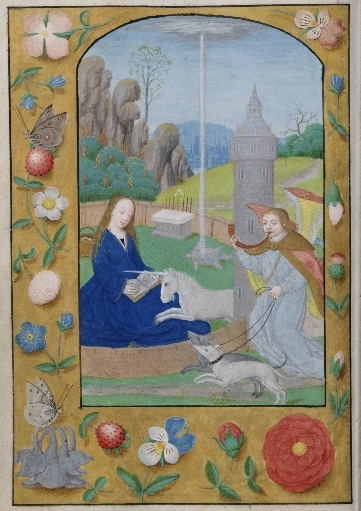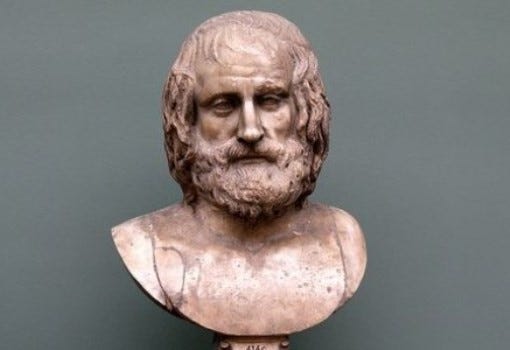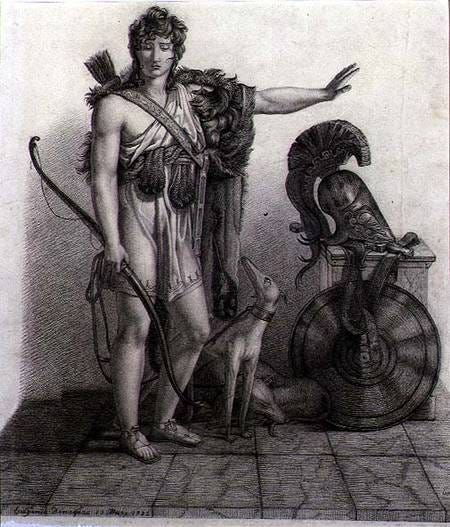Dear Classical Wisdom Reader,
Love is an immense force that has again and again changed the course of history, both on an individual as well as a societal scale. It has built men up and brought empires down. It has inspired great works and tragic deaths. Its power is undeniable; traversing time and place.
But what happens when one rejects love, particularly the physical aspects of eros? What did the ancient Greeks think about people who denied lust in favor of law? Or those who, like modern ‘incels’, dedicate themselves fervently, adamantly to a life of chastity?
The answer may surprise you...
It is to this incredibly fascinating question that the brilliant playwright, Euripides, the enfant terrible of the ancient tragedians, dedicated his play Hippolytus.
It is a story equal parts compelling and terrifying, with innumerable layers of complexity that reveal the intricate and convoluted relationship between lovers, law and lovers of the law. Tangled with taboos and that ancient characteristic sense of unraveling suspense, Hippolytus is certainly a play where there is much more than meets the eye.
Read on below for a fascinating deep dive on Hippolytus to understand the darker side of love.
Also, in case you missed it, I’ll be hosting a live chat with , Professor of Classics at Oxford. He’s the author of Socrates in Love and most recently, How to Talk about Love… so the man probably knows a thing or two on the topic. We’ll discuss Plato’s Symposium as well as the meaning of love itself.
Nota Bene: Make sure to download the Substack App beforehand to join us on Friday at Noon EST - and please note, Members can join the chat and ask questions as well - one of the many benefits that attend Classical Wisdom Membership. So if you aren’t a member already, make sure to subscribe now to enjoy the complete experience -as well as unlock our full article below:
All the best,
Anya Leonard
Founder and Director
Classical Wisdom
The Battle of Love and Law
By Nicole Saldarriaga
There’s a reason Euripides is often called the “people’s poet.” Though his plays were not the most popular in their own time, after his death they were soon recognized for their incredible attention to character.
Euripides, the People’s Poet
Euripides was able to take people on the outskirts of society—slaves, women, illegitimate children—and give them complicated psychologies and desires in a way that no tragedian was ever able to do before. One of his most famous plays, the Hippolytus, is a great example of this—by telling a story that seems fairly uncomplicated on the surface, Euripides is able to give us a glimpse into the complicated psyche of an illegitimate man who desperately craves legitimacy, and ultimately show us the intricate relationship between love and law.
Hippolytus begins with the appearance of the goddess Aphrodite on the stage. She introduces the audience to the major conflict of the play: Hippolytus, the illegitimate son of Athens’ King Theseus, has severely insulted Aphrodite by rejecting her and erotic love altogether in favor of a chaste life as a devotee of Artemis. As punishment, Aphrodite causes Theseus’ wife, Phaedra, to be overcome by a desire for her stepson—so that, once Phaedra’s unlawful attraction is revealed, Theseus will kill Hippolytus.
Share
Aphrodite’s plan succeeds spectacularly: when Phaedra’s nurse, in an effort to save her mistress (who, rather than admit her shameful love, is attempting to kill herself by starvation) reveals Phaedra’s secret to Hippolytus, and the horrified Hippolytus angrily rejects it, Phaedra’s intense shame leads her to hang herself—but not before leaving a note for Theseus in which she claims to have been raped by Hippolytus.
The outraged Theseus uses one of three wishes given to him by Poseidon to curse his son, and as Hippolytus flees into exile, Poseidon sends an enormous bull thundering out of the sea, which startles Hippolytus’ horses; the man is thrown from his chariot, though he remains tangled in the reigns, and the horses drag him to his death against the rocks.
More Than Meets the Eye...
This brief summary only hints at the complexities hidden beneath the surface-story. To plumb these depths and reveal the underlying tension between eros (erotic love) and nomos (law or custom), we must take a closer look at Hippolytus and Phaedra.
When Hippolytus first appears, he is just returning from a hunt, and his first order of business is to give reverence to Artemis. “For you, dear Lady, I bring this garland, this lovely chain of flowers,” he proclaims as he stands before her statue and altar, “from a virgin meadow…virgin it is, and in summer the bees frequent it, while Purity waters it like a garden.”
Euripides wastes no time in showing the audience that Hippolytus not only esteems the goddess, but also the very concept of virginity—above all else. What seems like every time he is on stage, Hippolytus references his virginity and his commitment to chastity in some way—it is clear that he holds tightly to the ideal and to the holiness he hopes to gain from his chastity.
Hippolytus, 1832 - Eugene Denagers
Why is Hippolytus so determined to reject eros—an erotic longing which, according to Phaedra’s nurse, is willed by the gods and cannot be withstood without a certain amount of arrogant presumption?
Read more
- Enlace a artículo -
Más info en https://ift.tt/2UgLjMh / Tfno. & WA 607725547 Centro MENADEL (Frasco Martín) Psicología Clínica y Tradicional en Mijas. #Menadel #Psicología #Clínica #Tradicional #MijasPueblo
*No suscribimos necesariamente las opiniones o artículos aquí compartidos. No todo es lo que parece.
































